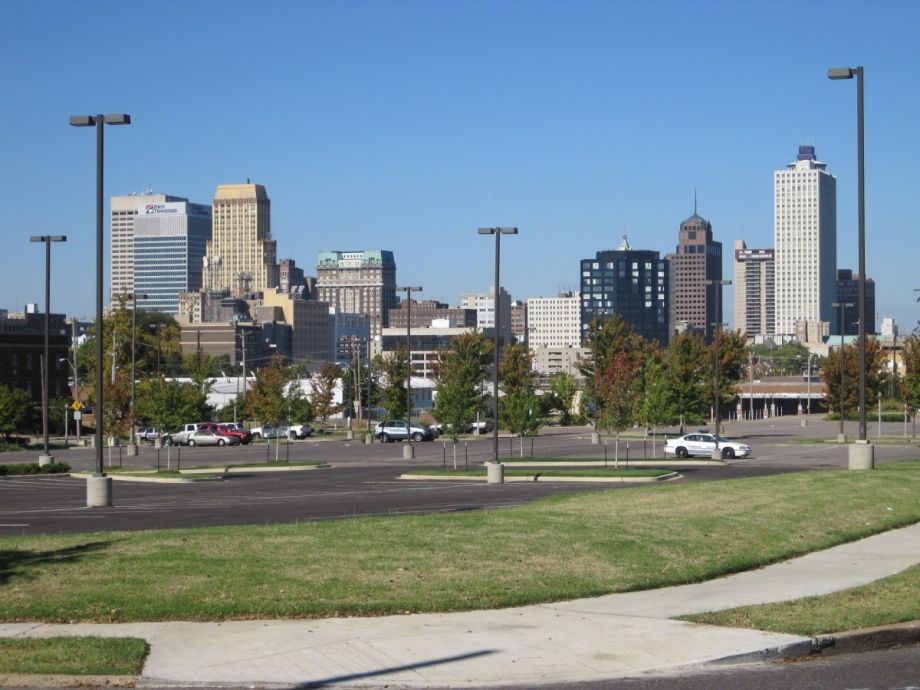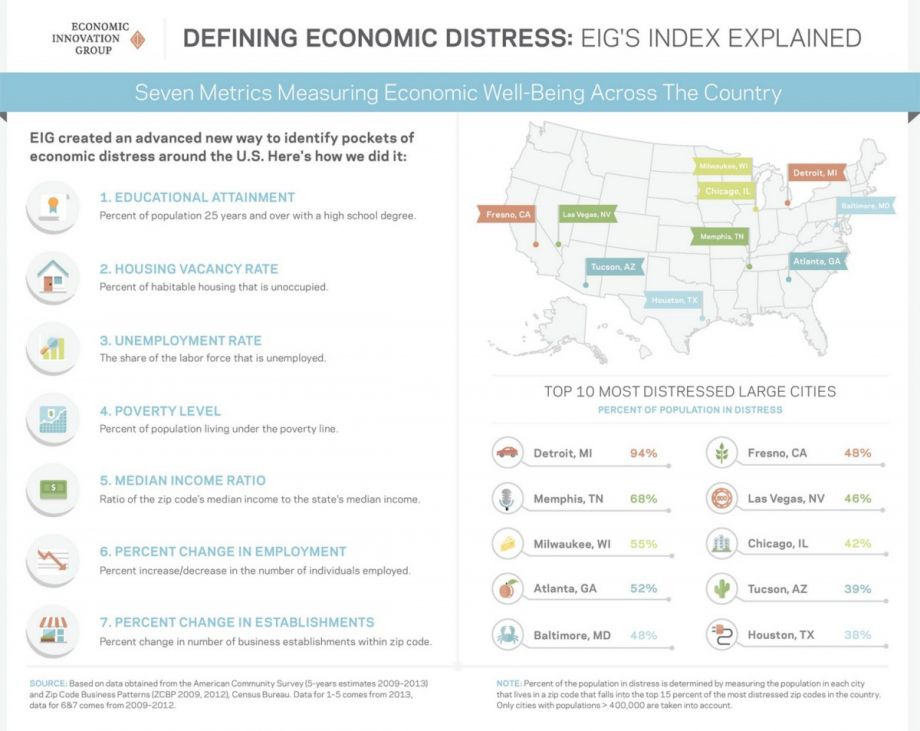America’s mayors often tout how municipal leaders outshine Congress when it comes to rising above party politics, but a new index from Economic Innovation Group that relies on data such as unemployment rates, vacant properties numbers and more points to a noticeable difference when it comes to urban economic recovery in blue states vs. red states. The Washington Post today points out that the bipartisan think tank’s index, released earlier this month, shows many of the most distressed cities in the U.S. are in blue states, while a majority of the most unequal cities are in red states.
According to the Post, the study has implications for the presidential race:
A few cities on these maps are in places from which 2016 GOP contenders hail — and hence could be focal points for Democratic attacks. Former Texas governor Rick Perry has touted the job creation that occurred in Texas on his watch; these maps suggest that progress didn’t reach everyone. And before he was Wisconsin governor, Scott Walker was a Milwaukee County executive. Both Texas and Wisconsin have bucked a national trend toward boosting the state’s minimum wage.
According to its website, the Economic Innovation Group’s mission is to catalyze broad-based economic growth by leveraging the power of entrepreneurs and investors through innovative public policy. As the Post reports:
During the recession, many community banks closed or failed. These banks have long been a major source of funding for small businesses. And a full 75 percent of venture capital — the pools of private investor money that helped make companies such as Facebook and Google what they are — goes to companies in just three states [according to Steve Glickman, co-founder and executive director of the Economic Innovation Group]. You can probably guess them, but here they are: California, Massachusetts and New York.
EIG hopes the study shows how the recession is still affecting the economic health of many cities. The organization plans to release online tools that will let you “dive deeper into what is driving economic distress or prosperity … see how well your community is doing, and then compare it to others across the country.”
“If you are sitting in a place like New York, D.C. or L.A., you probably have the sense that the recession is over,” Glickman told the Post. “That was terrible, but we’ve come out of it now. But the recession really changed so much about local economies — some much more than others.”
Jenn Stanley is a freelance journalist, essayist and independent producer living in Chicago. She has an M.S. from the Medill School of Journalism at Northwestern University.
Follow Jenn .(JavaScript must be enabled to view this email address)

















